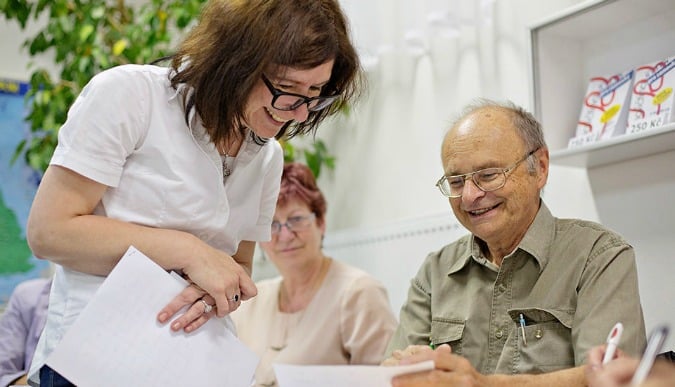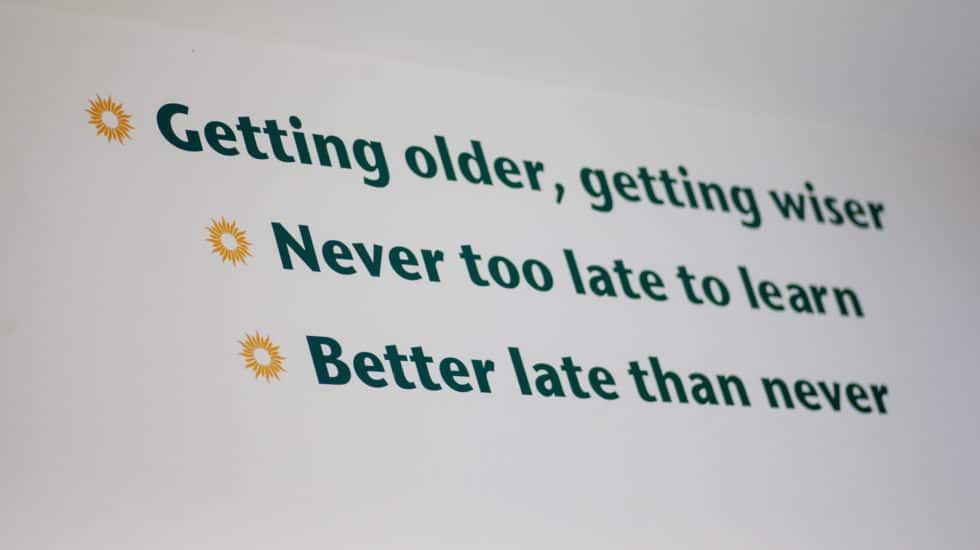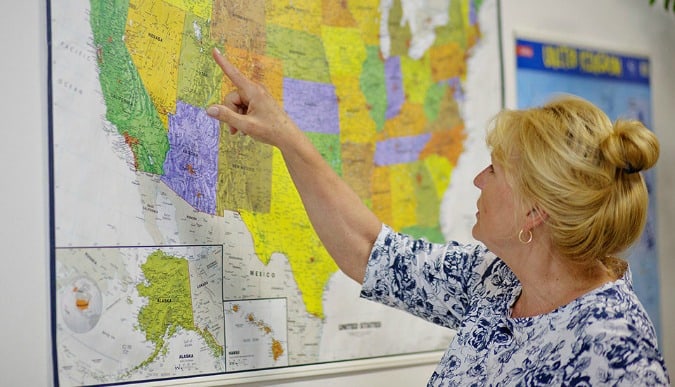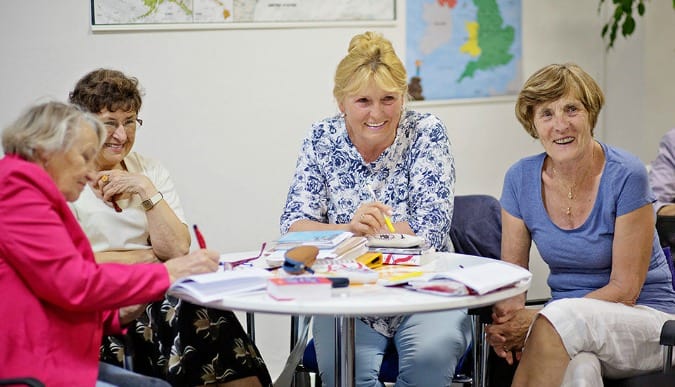In recent years, you may have seen viral videos of the elderly helping young Brazilians learn English via Skype. The innovative Speaking Exchange Project, started by the CNA schools in Liberadade, Brazil, was aimed at brightening the lives of retirees at a nursing home in Chicago.
The trend of getting seniors involved in learning a language is no passing fad and has in fact taken off around the world with many TEFL certification courses adding a class on teaching seniors – science even says that learning a second language can halt the onset of Alzheimer’s.
Here in the Czech Republic, more and more opportunities are turning up for those who want to learn English, and for instructors who want to teach these learners.
In Prague Gabriela Nováková, a former business development coordinator for the Czech News Agency (ČTK), and the founder of Angličtiny Pro Seniory has started one of the first independent language schools exclusively focused on students age fifty-plus.

If fifty seems a bit young for the term “senior” Nováková explains that no offense is meant: “This number is in compliance with the EU [definiton of] pre-seniors [who have] specific needs and requirements.” she says.
She adds that since the age of fifty people have traditionally had difficulties finding work in the Czech Republic while society tends to become increasingly dismissive of this demographic.
“I try to raise a public awareness among my students who are seniors in the Latin sense of the word – experienced and respected – to give them more confidence and certainty,” says Nováková.
Easy manual work with electronics - start 8th Jan

🌟 Customer Care Specialist FR – Prague 🌟


The age range of students in Nováková’s class is 52-88 but the average age is 65. She first became involved with this age group through her work with non-profit organization Senior fitnes where she taught English.
During the 90-minute weekly lessons, articles of 150 words tailored for each English-language level are used to encourage speaking and vocabulary; from September Nováková will add an audio MP3 voiced by a native speaker to help with pronunciation.
Students join the classes for a variety of reasons, among them, to be able to speak while traveling, to speak to their grandchildren who are learning English, as well as to postpone age-related diseases, and socialize with peers.

The classes have become so popular that Nováková is currently seeking a native speaking instructor to help with the workload. She sees the popularity of the classes as a reflection of a positive change in Czech society with many more opportunities for seniors becoming available.
“There are many non-profit organizations and senior citizen homes which offer language courses mostly free of charge or for a small fee,” she notes but sees her project as unique among them for offering specialized materials and a student-led approach that focuses on speaking.
For English teachers looking to work with this group, Nováková has some advice:

“I think a [potential] teacher should [consider] the reasons why s/he wants to teach seniors and must understand the particularities of teaching the elderly. The perfect age of teacher for seniors is 40-50 years old, a person who can understand their wounds – not too old, not too young but middle age with optimism, energy, and good health.”
That said, Nováková’s clientele is happy to interact with younger teachers and she adds that teaching this group can be rewarding on many levels.
“Teaching seniors is more rewarding from a discussion point of view. People over fifty are widely experienced and wise. They have their own opinion and view of things. The teacher can break down the discussion with them from an intellectual point of view. They think over the replies to the given questions. They enjoy discussion on general topics about life more because they just know.”













 Reading time: 3 minutes
Reading time: 3 minutes 

 Polish
Polish
 Swedish
Swedish
 Norwegian
Norwegian
 Danish
Danish

















